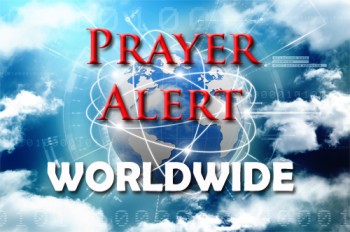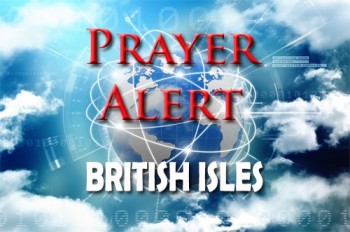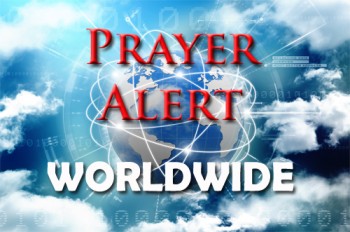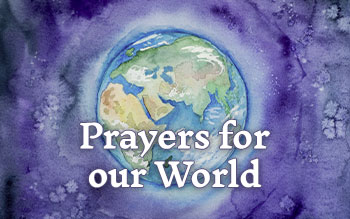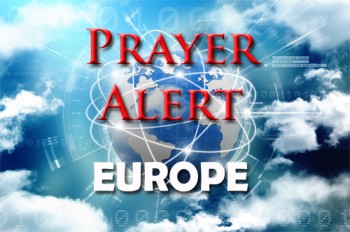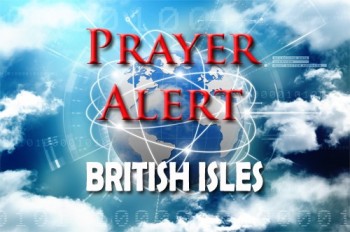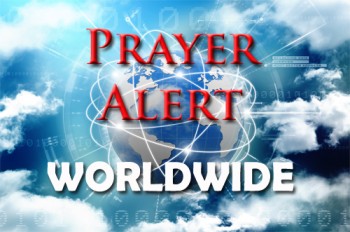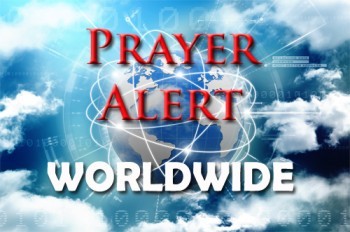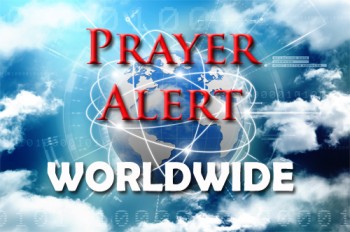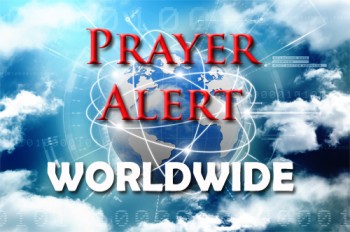
Displaying items by tag: Hong Kong
Hong Kong: disruption, not law changes causing emigration
Although emigration is increasing because of the new national security law, many people will leave not because of communism or a lack of unfettered democracy, but due to never-ending disruption to their lives and careers and their children’s future. In October 2019 an annual survey of attitudes towards migration found 42.3% of Hong Kong respondents wanted to emigrate - mostly to Canada, Australia or Taiwan. It was 33% in 2018. Decades of political and economic uncertainty, combined with entrenched unresolvable divisions between people pleased to be rejoined with the mainland and those who still hanker for former colonial rule, has caused uncertainty and unrest. Hong Kong’s population planners concentrate on birth and death rates, but a meaningful force for population change has been migration. With little hope of earning enough to buy a family home, many may decide they have little to lose. Hong Kong’s property cartel is pushing inequality to the brink.
UK will honour Hong Kong passport promise
Dominic Raab says that China’s new laws (see world article 3 below), cementing its control over Hong Kong, are a serious violation of the 1997 agreement about Hong Kong's future. Boris Johnson has said he will now make it possible for those with British National Overseas status to enter the UK, with limited leave to live and work and apply for British citizenship. The ‘new bespoke immigration route’ means an eligible Hong Kong resident could move to the UK without the current limits, and would be able to live and work in the UK for five years. After that they (and their dependents) could apply for settled status and eventual citizenship. China firmly opposes this and reserves the right to take corresponding measures. Australia is also considering offering a safe haven for Hongkongers.
Hong Kong: security law passed
China has passed a controversial national security legislation for Hong Kong that will cover acts of ‘secession, subversion, terrorism and interference by foreign powers in the territory's internal affairs’ while allowing mainland China’s intelligence agencies to establish themselves there. Critics say this will outlaw dissent and destroy the autonomy and freedoms promised in the Sino-GB agreement when Hong Kong was returned to China in 1997. The draft of the law was announced on the anniversary of this event, symbolically implying that China is in charge and its leaders will do whatever they deem necessary to protect Hong Kong. On 1 July police fired water cannon and tear gas while arresting 300+ people protesting in defiance of the sweeping legislation, and a ‘dissident’ was arrested at the airport before boarding a plane to the UK. Amnesty International warned, ‘China's aim is to govern Hong Kong through fear from this point forward’.
Hong Kong - ‘Heartbreaking’ day as Beijing imposes national security law
Christian human rights campaigner Benedict Rogers has spoken of his heartache for the future of Hong Kong after Beijing passed the contentious national security law.
Rogers, East Asia Team Leader at Christian Solidarity Worldwide, said the passing of the legislation was "heartbreaking" and represented a "grave threat" to the freedoms of the territory.
The development, he added, has left Hong Kongers "in fear" for their future, safety and freedoms.
"Twenty-three years ago today, Hong Kong was handed over to China with the promise that Hong Kong's way of life, basic freedoms and the high degree of autonomy would be protected under the 'One Country, Two Systems' principle ... that is valid for the first 50 years after the handover until 2047," he said.
"And yet today, less then halfway through the lifespan of that promise, the Chinese Communist Party has flagrantly broken that promise to the people of Hong Kong and breached that international treaty.
"The imposition of the national security law on Hong Kong poses a grave threat to Hong Kong's basic freedoms, which have already been seriously eroded over recent years."
Rogers criticised the way in which the legislation was passed by China's National People's Congress rather than the Hong Kong legislature, saying it "seems to bring an end" to the high degree of autonomy promised to the region.
However, he went on to share a message of hope with the people of Hong Kong as he spoke of the "unexpected" victories that he had encountered in his many years of campaigning for human rights.
"Even though you may be entering into a period of great darkness and grave danger, do not lose hope," he said.
"History shows that no dictatorship lasts forever. I've been involved in other struggles for freedom and freedom has come sometimes when we don't even expect it. Unexpected victories, unexpected dawns come.
"I've seen countries freed [where] I didn't necessarily think [that] would happen. And I believe the same can happen for the people of Hong Kong, and for all the people of China."
Pray for the people of Hong Kong – that they will remain resilient amidst the pressures and uncertainties that this new law has imposed.
Pray for democracy, the 50 year promise and freedom of speech to be respected in Hong Kong.
Pray for the Christian clergy, many of whom have campaigned for the pro-democracy movement – that they will not be detained or put on trial.
See also: https://www.christiantoday.com/article/fears.for.hong.kong.clergy.under.beijing.national.security.law/135081.htm
EU shrugs as China takes over Hong Kong
In the aftermath of China's new national security law for Hong Kong, which ends the autonomy of the former British colony, the US, UK, Australia and Canada immediately protested. However the EU representative for foreign affairs ruled out sanctions against China and decided not to use its leverage as the world’s biggest trade bloc to support Hong Kong. The French foreign minister announced that Europe must not get carried away in a clash between US and China, and that ‘a new cold war’ must be avoided. The German parliament said, ‘A policy aimed at isolating China is not in Germany's or Europe's interests’. A European diplomat confessed that Europe is sacrificing Hong Kong to protect its economic relationship and investments in China.
Boris Johnson and Hong Kong
Hong Kong citizens may be offered UK visas. Boris Johnson has opened the path to what he called one of the ‘biggest changes’ to our visa system, stating he is ready to offer a right to live and work in the UK to any of the nearly three million Hong Kong citizens eligible for a British National Overseas (BNO) passport. The prime minister’s offer would come into play only if China presses ahead with new security laws that strip Hong Kong of its traditional freedoms. Pray for him and Dominic Raab to be wise in all their relations and dealings with China. Pray for peaceful streets in Hong Kong, and for Chinese Christians to be unwavering and protected as they face their government’s current attitude.
China’s betrayal of Hong Kong
Until now, Hong Kong has enjoyed freedoms not allowed on mainland China. On 28 May, Beijing announced it will press on with a national security legislation on Hong Kong’s autonomy that overrides the ‘one-country-two-systems’ principle granted to Hong Kong in 1984. The bill will now pass to China's senior leadership. It could end Hong Kong's unique status and see China installing its own security agencies in the region for the first time. Thousands of protesters have been demonstrating against the bill and China’s new national anthem wording. Chris Patten, the last governor of the former British colony,says that China has betrayed the people of Hong Kong and the UK has a moral, economic and legal duty to stand up for them. Hundreds are in custody for unauthorised assembly. Chinese media reported police using tear gas, pepper spray, and water cannon. Washington has called the laws a ‘death knell’ for the city’s autonomy. See
Hong Kong: no Happy New Year
South China’s Morning Post editor prophesied: ‘There is no Happy New Year ahead for Hong Kong, just endless protest chaos for the foreseeable future. Get used to it because nothing is changing, nobody is coming to the rescue, and no one has any panacea for the most destructive and debilitating social and political crisis since the city’s return to China. Wreck and repair, rinse and repeat: that’s been the new normal for more than six months and the lid has been blown off the Pandora’s box of Hongkongers’ pent-up problems and frustrations. Hong Kong’s revolution is sliding into terrorism with home-made bombs. There will be scattered protests on weekdays while most citizens go about their daily business, occasional mass rallies to mark some anniversary or another of the hate-China / destroy-police / despise-government campaign, and regular outbreaks of violence and anarchy over weekends and public holidays.’ Let us pray that this gloomy prophecy will not be accurate and that God will miraculously end a frightening situation.
Hong Kong: stalemate
On 24 November we praised the district election results which swept aside pro-establishment candidates and installed democratic majorities in 17 out of 18 districts, a stunning reversal attributed to the months of protests and voters’ deep dissatisfaction with the government. But now, three weeks later, prayer is still needed for a commission of inquiry into allegations of police brutality. Chief executive Carrie Lam is in no haste to satisfy any of the demands, which she has repeatedly dismissed as unrealistic. Several opinion polls indicate that most Hong Kong citizens support an independent inquiry, but she insists on leaving all questions about police conduct during the protests to an independent police complaints council. Beijing is in no rush to fix the problem, stating that Hong Kong will always be a part of China, and urges them to be more like their Macau counterparts in making the ‘one country, two systems’ principle work. Commentators warn of an even bigger political crisis if deep-rooted grievances are not addressed.
Hong Kong: US act and election results
The US Senate has passed a Hong Kong Human Rights and Democracy Act (see ) that aims to protect the human rights and autonomy and freedoms of Hong Kong. This bill sends a message of hope to many pro-democracy protesters. China warned it could take ‘firm counter-measures’ if Washington continues to show support for Hong Kong’s pro-democracy protesters. We need to pray that more nations in the free world will also send a clear message to Beijing that they stand with Hong Kong in their struggle for democracy. Meanwhile, Hong Kong’s first election since the protests began saw a turnout of 71% as people stood up to defend their freedoms against an increasingly aggressive Beijing. Their votes resulted in seventeen of the eighteen district councils now being controlled by pro-democracy councillors. However, China’s state media outlets are either making no reference at all to election results or claiming ‘tampering’ had taken place.

